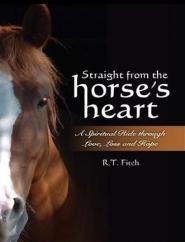TMitt Romney: Romney attracted the ire of animal advocates when they learned that during a 1983 vacation, he put the family’s Irish setter, Seamus, in a carrier and strapped him to the roof rack of the station wagon. When the terrified dog urinated and defecated during the 12-hour drive, Romney pulled over, hosed down the dog, and continued the voyage from Boston to Ontario. As chief executive of the 2002 Winter Olympics in Salt Lake City, Romney also came under fire from animal protection groups for allowing a rodeo exhibition that included calf roping. His term as Massachusetts governor from 2003 to 2007 was mixed, and Romney did not distinguish himself on animal issues. He appointed a raft of animal-unfriendly people to the state Fisheries and Wildlife Board, even though Massachusetts voters overwhelmingly passed a ballot measure calling for more balanced wildlife policy. He vetoed a bill that would have given students the right to choose alternatives to animal dissection in the classroom. He did, however, sign a number of animal protection bills into law, including measures to strengthen the animal cruelty and animal fighting laws and prevent a convicted animal abuser from getting the animal back.
Rick Santorum: Of all the candidates who have served in Congress, Santorum was arguably the most active on animal protection issues. He earned a 60 percent on the Humane Scorecard for the 108th Congress, and an 80 percent for the 109th Congress. But more importantly, he was the lead sponsor of the Pet Animal Welfare Statute (PAWS) to crack down on large-scale commercial puppy mills, and held a hearing on the bill when he was the chairman of the Senate Agriculture Committee’s Subcommittee on Research, Nutrition and General Legislation. He was also a leader in the Senate urging adequate funding for the enforcement of the Animal Welfare Act, Humane Methods of Slaughter Act, the federal animal fighting law, and other animal welfare programs. He cosponsored legislation to establish federal felony penalties for dogfighting and cockfighting, cosponsored legislation to require the addition of a bittering agent to antifreeze and engine coolant to prevent the poisoning of pets, and voted to stop the slaughter of American horses for food exports.
It’s clear that Santorum, Perry, and Huntsman have the strongest animal protection records. They showed leadership and active support for our issues, and HSLF commends them for their past performance. Bachmann and Paul have demonstrated a consistent hostility or indifference to these concerns. Romney has largely been indifferent and has not been an active supporter. Gingrich has been a bit enigmatic, but he understands the power of the human-animal bond and has taken action to protect some of the most charismatic species.

















Most Recent Comments